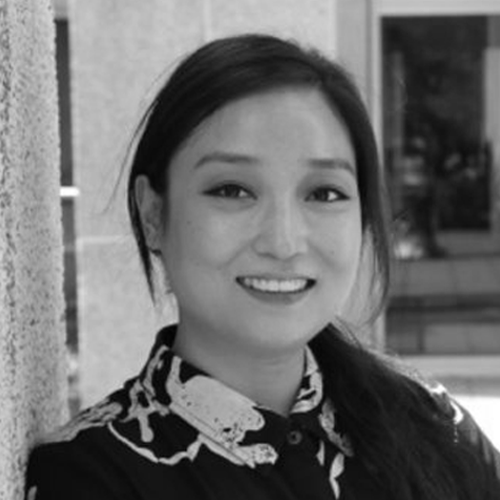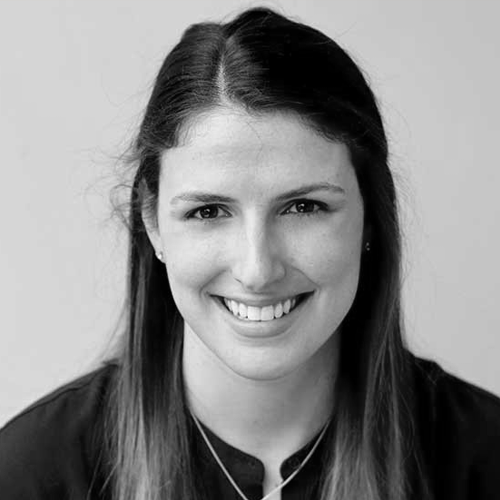Breakout Session 3
New and Emerging Threats to Data Privacy
March 6, 1:00 - 2:00 p.m. EST
With our increased reliance on digital communications and online platforms, data privacy has become a topic of amplified interest and importance. Recent events have highlighted the ways in which the public and consumers have little awareness and control over how their data is used by corporations. Moreover, privacy - especially data privacy - is not an equal commodity for all members of society. While it is often treated as a luxury item, and one that can be traded on or given up by those in positions of privilege, the impacts of threats to data privacy can disproportionately impact those more vulnerable and oppressed. This panel will explore ways in which new technologies, changing social norms, and recent world events impact our ideas about, and regulation of, data privacy.
Moderator:
Angela Lee, Assistant Professor, Ryerson Law
Panelists:
Greg McMullen, Greg McMullen Law
Kristen Thomasen, Assistant Professor, Peter A. Allard School of Law, University of British Columbia
Kathleen Hammond, Assistant Professor, Ryerson Law

Angela Lee joined Ryerson University's Faculty of Law as an Assistant Professor in 2020. She received her JD at the Peter A. Allard School of Law at the University of British Columbia, and is currently a PhD Candidate at the University of Ottawa's Faculty of Law. As a first-generation immigrant, law school graduate, and academic, she strongly believes in the importance of representation, and is committed to mentoring and supporting those who are similarly situated.
Lee’s research interests lie at the intersection of law and policy, technology and innovation, the environment, society, and various forms of justice. Her doctoral work, in which she develops a framework for "technology justice" in the context of Canada's agri-food sector, has been supported by a number of scholarships and awards, including a Social Sciences and Humanities Research Council of Canada (SSHRC) Doctoral Fellowship, an Ontario Graduate Scholarship, and the University of Ottawa Faculty of Law’s Shirley E. Greenberg Scholarship and Scholarship in Environment and Sustainability. Her recent research examines the state of innovation policy in Canada, arguing that improved understanding and broadened conceptions of innovation are necessary in order to better direct innovation towards shared social and environmental ends.
Lee has previously taught courses in Food Law, Animals and the Law, and Contract Law at the University of Ottawa's Faculty of Law and at Dalhousie University's Schulich School of Law, where she was a 2019-2020 Schulich Fellow. She is a co-editor of Food Law and Policy in Canada (Toronto: Carswell, 2019), and her research has been published in numerous peer-reviewed journals, including the UBC Law Review, the Dalhousie Law Journal, the Canadian Journal of Women and the Law, the Windsor Review of Legal and Social Issues, and Canadian Food Studies. She regularly shares her research at national and international fora. She is a board member of the Canadian Law and Society Association and a member of the Canadian Association of Food Law and Policy.

Greg McMullen is a class actions lawyer and legal consultant based in Vancouver, British Columbia. His work centres on the societal impact of emerging technologies, particularly on civil liberties and human rights. He has a JD from the University of British Columbia, a MA in Communication and Culture from the University of Calgary, and a BA from the University of New Brunswick. He has been a practicing member of the Law Society of British Columbia since 2010.
McMullen's class actions practice focuses on privacy. He has been plaintiff counsel in a number of high profile class actions, and argued for certification of the class in Douez v Facebook. His firm is part of a consortium representing a proposed class in a claim against Google, which includes allegations of trespass, invasion of privacy, and violations of competition and consumer protection laws in Google’s data collection practices.
McMullen’s legal consulting and activist work focuses on privacy and surveillance, artificial intelligence, and blockchain technology. He has advised the BC Civil Liberties Association on a number of matters involving emerging technology, including bulk metadata surveillance and the use of private sector “open source intelligence” by police and national security agencies in blockchain investigations. He is a part of COALA, a multidisciplinary blockchain policy organization, and has served as an invited expert on blockchain law at the EU Intellectual Property Office.

Kristen Thomasen is an Assistant Professor at the Peter A. Allard School of Law at the University of British Columbia. Prior to holding this position, she was an Assistant Professor of Law, Robotics, & Society at the University of Windsor. Her research focuses on the legal, social and ethical implications of robotic technologies and artificial intelligence. She’s especially interested in the role that law and regulation play in how automated technologies impact shared and public spaces.
Kristen is completing her Ph.D. in law from the University of Ottawa. Her thesis explores the implications of drone and home surveillance technologies for privacy in public spaces in Canada, and received a SSHRC Joseph-Armand Bombardier Canada Graduate Scholarship.
Prior to starting her Ph.D., Kristen clerked for the Honourable Madam Justice Rosalie Abella at the Supreme Court of Canada (2013-2014) and for the Alberta Court of Queen’s Bench (2012-2013). Kristen is a member of the Law Society of Alberta (called in 2013).

Katie Hammond is an assistant professor in the Faculty of Law at Ryerson University. Prior to joining the Faculty, she was a postdoctoral fellow with the Research Group on Health and Law at McGill University’s Faculty of Law and a visiting fellow with the Petrie-Flom Center for Health Law and Policy at Harvard University’s Faculty of Law. She holds a JD and a BCL from McGill University Law School. She completed an MPhil in Multi-Disciplinary Gender Studies and a PhD in Legal Sociology at the University of Cambridge where she was a Gates Cambridge Scholar and a Commonwealth Scholar.
Hammond’s research spans across health law and policy, science and technology law, and gender and families. Her research explores the dilemmas – legal and otherwise – that are posed in the wake of new medical technologies and their resulting markets. In particular, she specializes in the area of assisted reproductive technologies (including egg, sperm and embryo donation, surrogacy and egg freezing) and new genetic testing technologies. Her work aims to address these dilemmas by exploring how legal concepts should evolve with our rapidly changing society, and how we can take a more people-oriented approach to law-making.
Hammond has held a number of fellowships, including with the Brocher Foundation in Geneva, Switzerland, the Embryo Project at the Center for Biology and Society at Arizona State University, and with the Marine Biological History Project in Woods Hole, Massachusetts. She has been involved with policy development in the area of reproduction for organizations such as the World Health Organization, where she was involved with organizing, and participated in the consultation for the WHO’s first ever glossary and guidelines on infertility.